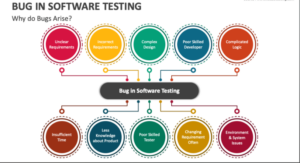Quality Assurance is one of the trending jobs in the tech industry. With any quality assurance position, you wish to occupy, rest assured to be well paid. They also have enticing career opportunities and rarely suffer from professional burnout. This has led to a surge in the need for Quality Assurance (QA) professionals, making QA one of the most lucrative skills in the tech industry. But why exactly is Quality Assurance so vital, and how can you, as a beginner or experienced professional, leverage this demand to build a successful career?
This comprehensive guide will explore the key reasons why QA is a lucrative skill in the tech industry and how enrolling in a QA Testing Online Training course can open doors to exciting career opportunities. We’ll also look at real-world examples, industry statistics, and practical applications to understand why mastering QA is a strategic move for tech professionals.
Introduction to Quality Assurance in Tech
Quality Assurance (QA) is a systematic process designed to ensure that software products meet specified requirements and function without defects. In the tech world, QA is critical because it directly impacts the user experience and overall business success. With more companies adopting agile and DevOps methodologies, QA has become an integral part of the software development lifecycle (SDLC).
According to industry research, companies that invest in QA and testing save significantly on long-term maintenance costs. As more organizations recognize this, the demand for skilled QA professionals continues to grow.
The Growing Demand for QA Professionals
The demand for QA professionals has skyrocketed in recent years. As digital transformation sweeps through various sectors ranging from healthcare and finance to e-commerce and entertainment companies are striving to build flawless software solutions. In 2023, the global software testing market was valued at over $40 billion, and it is expected to grow at a compound annual growth rate (CAGR) of 14.7% from 2024 to 2030.
One of the key reasons for this demand is the growing complexity of software applications. With the integration of AI, machine learning, IoT, and cloud-based technologies, ensuring software quality has never been more challenging. Companies are actively seeking QA testers and automation engineers to ensure that their products are delivered with minimal defects.
In fact, a survey by Stack Overflow reveals that software testers are among the top 10 most in-demand roles in tech. This makes QA a highly desirable skill set for professionals looking to advance in the tech industry.
The Role of Quality Assurance in Software Development
In software development, QA plays a crucial role in preventing defects, reducing costs, and ensuring that the end product meets customer expectations. Unlike traditional testing that focuses solely on identifying bugs, QA is a comprehensive approach that covers the entire SDLC—from planning and designing to testing and deployment.
Key Responsibilities of QA Professionals:
- Requirement Analysis: QA engineers work closely with developers and stakeholders to understand the software’s requirements, ensuring clarity and completeness.
- Test Planning and Strategy: QA professionals create detailed test plans and strategies to define the scope, objectives, and approach for testing.
- Test Case Design: Writing test cases based on requirements to cover all possible scenarios.
- Manual and Automated Testing: QA testers perform both manual and automated tests to identify issues and ensure that the software functions as expected.
- Bug Tracking and Reporting: Reporting and tracking defects to ensure they are resolved before the final release.
- Post-Release Monitoring: QA teams continue to monitor the software after deployment to ensure there are no unforeseen issues.
Skills and Tools Needed for Quality Assurance
As a QA professional, there are several essential skills and tools you will need to master:
Technical Skills:
- Understanding of SDLC and STLC (Software Development Life Cycle and Software Testing Life Cycle)
- Knowledge of Test Automation Tools: Tools like Selenium, QTP, and TestComplete are widely used in automated testing.
- Proficiency in Programming Languages: Python, Java, and JavaScript are commonly used in test automation.
- Familiarity with Continuous Integration (CI) Tools: Jenkins and Bamboo are crucial for integrating automated tests into the development pipeline.
Soft Skills:
- Attention to Detail: QA professionals must be meticulous and have a keen eye for detecting subtle issues.
- Problem-Solving Skills: The ability to diagnose and troubleshoot problems quickly is essential in QA roles.
- Collaboration and Communication: QA testers must work effectively with developers, product managers, and other stakeholders.
Tools Used in Quality Assurance:
- Selenium: A popular open-source automation testing tool for web applications.
- JIRA: A bug tracking and project management tool.
- Postman: A tool for API testing.
- LoadRunner: A tool for performance testing.
The Lucrative Career Paths in QA
One of the main reasons why QA is a lucrative skill is the diverse career paths it offers. Whether you’re interested in manual testing, test automation, or performance testing, QA professionals can specialize in various areas. Here are some of the top career options in QA:
Manual Tester:
Manual testers execute test cases without automation tools. This role is ideal for beginners and provides a strong foundation in understanding software behavior.
Automation Engineer:
Automation engineers design and write scripts to automate test cases, significantly speeding up the testing process. This role is highly sought after as companies aim to streamline their QA efforts.
Performance Tester:
Performance testers focus on evaluating software performance, such as response times, load handling, and overall system stability. This role is critical for ensuring scalability.
QA Manager:
QA managers oversee the entire quality assurance process, from planning and strategizing to execution and delivery. They ensure that all QA activities align with business goals.
DevOps QA Engineer:
In organizations practicing DevOps, QA engineers play a critical role in integrating testing into the development pipeline, ensuring continuous quality.
Security Tester:
With the rise of cyber threats, security testers ensure that applications are free from vulnerabilities and can withstand hacking attempts.
Real-World Examples: Companies Leading the QA Space
Several companies have become leaders in the QA industry, employing innovative testing strategies to ensure their software is top-notch. Some notable examples include:
Google:
Google is known for its rigorous QA processes, particularly its use of automated testing frameworks that ensure high-quality releases across its vast portfolio of apps and services.
Netflix:
Netflix leverages chaos engineering to test the resilience of its systems. By intentionally introducing failures into their system, they ensure that their platform can withstand real-world issues without affecting user experience.
Amazon:
Amazon places a strong emphasis on performance testing to ensure their e-commerce platform can handle millions of transactions simultaneously, especially during high-traffic events like Black Friday.
Why QA is Essential for Business Success
The importance of QA goes beyond preventing bugs it ensures customer satisfaction, reduces long-term costs, and maintains a company’s reputation. In a world where a single software glitch can lead to financial losses or damage a brand’s credibility, companies are investing more than ever in Quality Assurance.
Benefits of QA for Businesses:
- Improved Customer Satisfaction: Bug-free software leads to a better user experience, which directly impacts customer retention and brand loyalty.
- Cost Savings: Identifying issues early in the development process saves businesses the significant costs associated with fixing problems post-release.
- Risk Mitigation: A well-executed QA process helps in identifying vulnerabilities, ensuring compliance, and protecting the business from cyber threats.
How to Get Started with QA: A Step by Step Guide for Beginners
For beginners looking to break into the QA field, here’s a step by step guide to get started:
Understand the Basics of Software Testing
Learn about the different types of testing (manual vs automated) and familiarize yourself with the Software Testing Life Cycle (STLC).
Get Hands-On with Manual Testing
Before jumping into automation, it’s essential to master manual testing to understand how software behaves.
Learn Automation Tools
Start with popular automation tools like Selenium and learn how to write basic scripts to automate test cases.
Familiarize Yourself with Bug Tracking Tools
Learn how to use bug tracking tools like JIRA to log and track defects.
Join a Quality Assurance Training Program
Enrolling in a comprehensive Online Quality Assurance Training course, like the one offered by H2K Infosys, will help you develop the skills needed to succeed in the industry.
The Benefits of Online Quality Assurance Training
Enrolling in an online QA training program has several advantages:
- Flexibility: Study at your own pace while balancing work or other commitments.
- Access to Industry Experts: Learn directly from professionals with real-world experience in QA.
- Hands-On Experience: Many online courses include projects and case studies that give you practical, hands-on experience.
- Networking Opportunities: Connect with fellow learners and industry experts through online forums and mentorship programs.
At H2K Infosys Quality Assurance Training for Beginners is designed to equip you with the skills needed to succeed in today’s competitive tech industry.
Enroll in H2K Infosys Quality Assurance Testing Online Course
Whether you’re a beginner or a professional looking to upskill H2K Infosys offers a QA Testing Online Training course tailored to your needs. Our course covers everything from manual testing and automation to performance testing and DevOps integration.
Course Highlights:
- Comprehensive Curriculum: Covering all aspects of QA from beginner to advanced levels.
- Hands-On Projects: Gain real-world experience by working on live projects.
- Job Placement Assistance: Our Quality Assurance Training and Placement program ensures you’re job-ready with career support and interview preparation.
Conclusion:
The success of any tech company is based on the quality of its products and services. That is why big tech companies are very intentional about their quality assurance. So if you are into quality assurance, there is a place for you in the lucrative tech world where you can earn a good living. But you have to be good at QA skills. You can take online QA certification courses that will help you hone the required skills needed in QA for the tech world.
Whether you’re just starting or looking to specialize, QA training provides you with endless opportunities for career growth. Enrolling in a course like H2K Infosys QA Testing Online Training will not only equip you with industry-relevant skills but also ensure that you’re prepared to tackle the evolving demands of the tech industry.
Key Takeaways:
- QA is critical for business success, ensuring quality, reducing costs, and enhancing user satisfaction.
- Demand for QA professionals is on the rise, making it a lucrative career path.
- Comprehensive QA training is essential for building a successful career in tech.
Don’t miss the opportunity to upskill in one of the most sought-after areas in tech. Enroll in Online qa course today and take the first step toward a rewarding career in Quality Assurance.






























